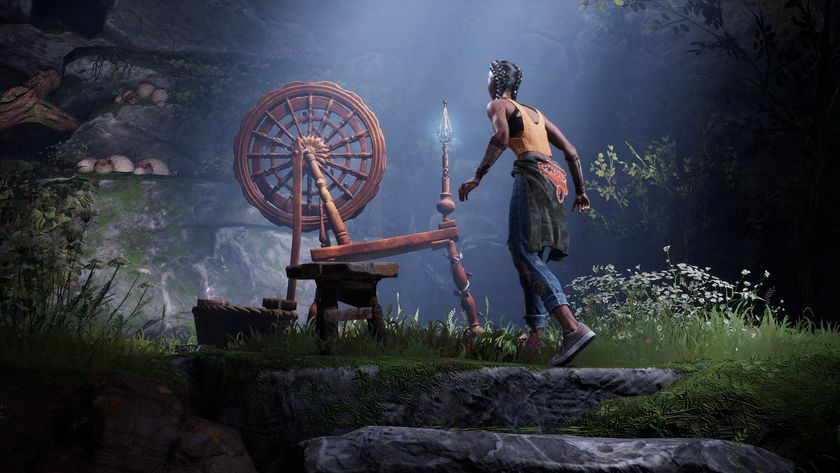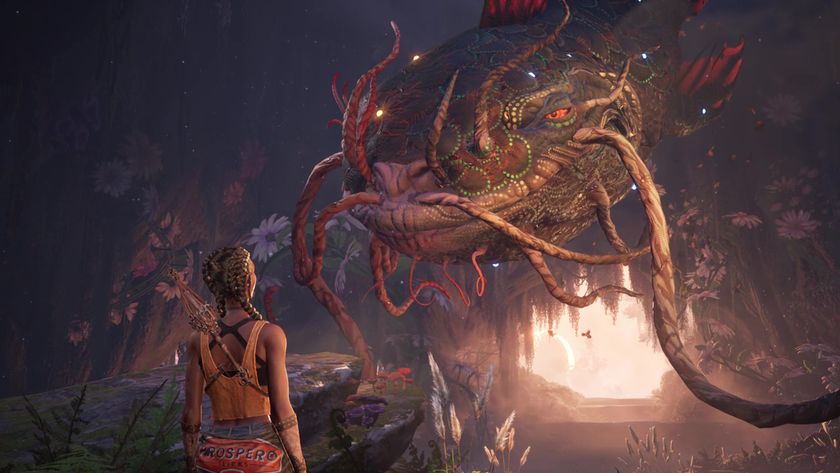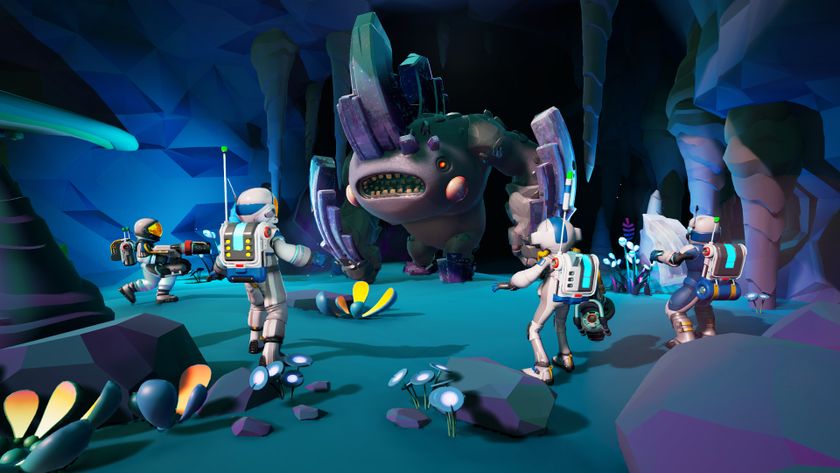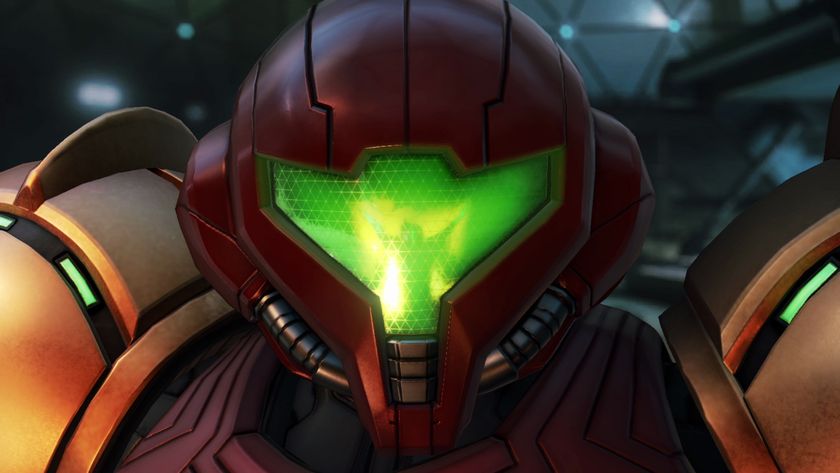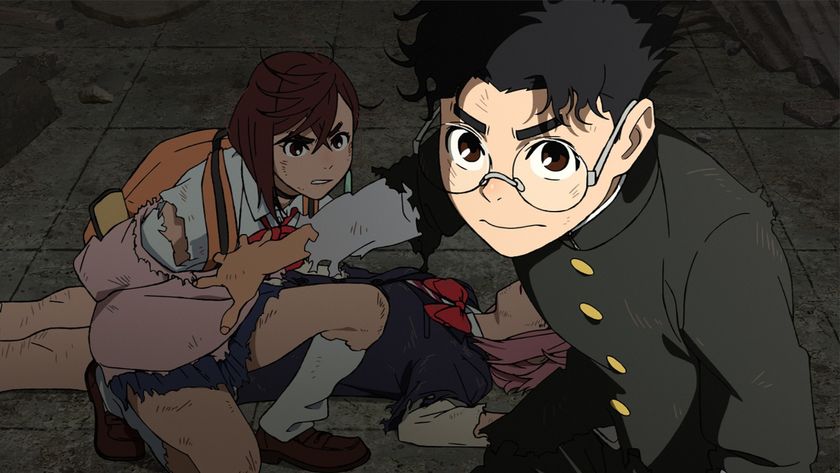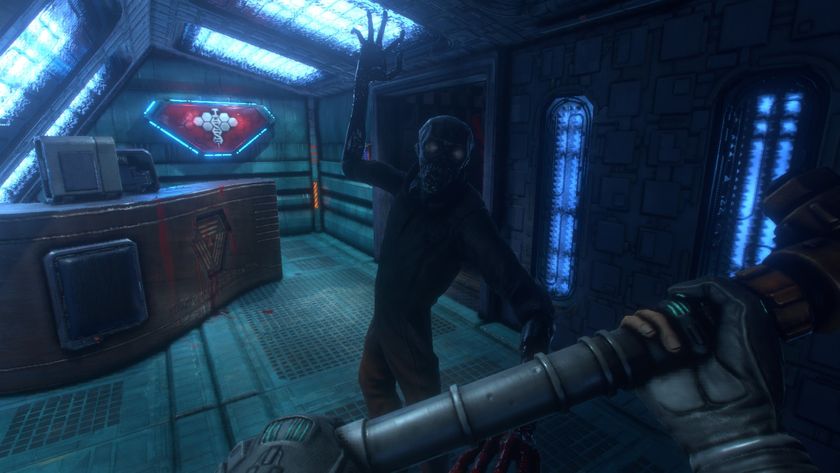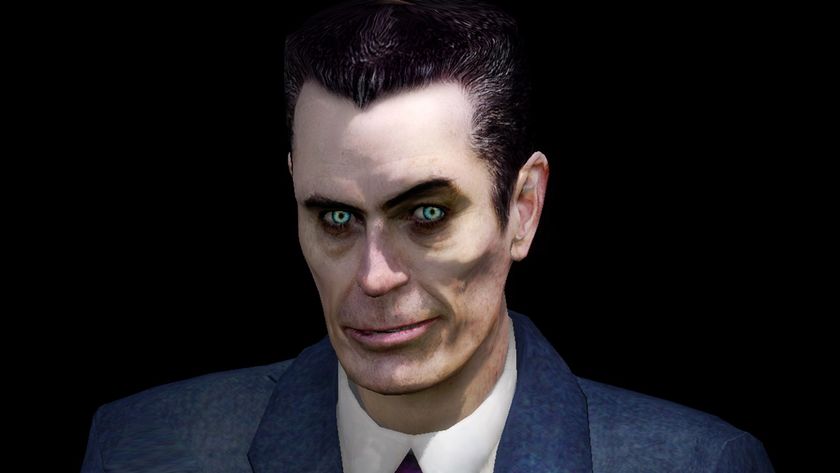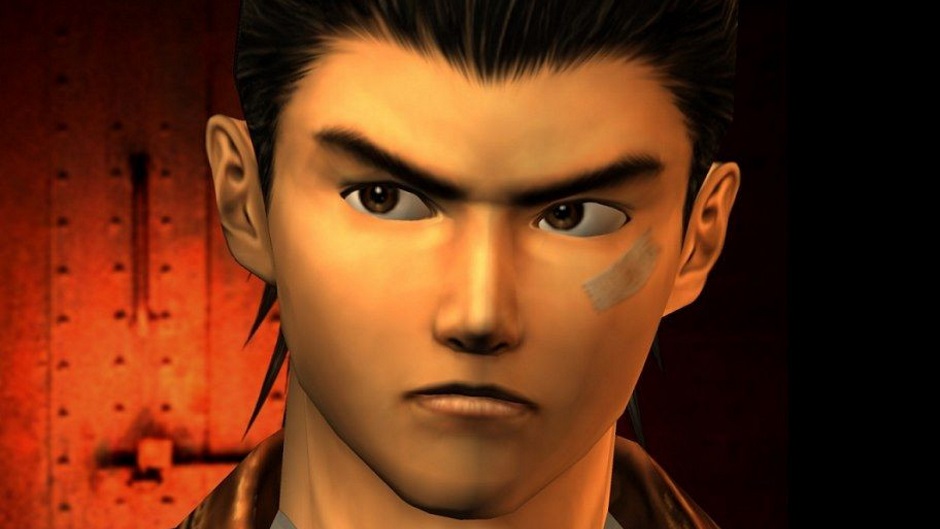
Shenmue is, without hyperbole, one of the most important games ever made. With a long-awaited third installment finally on the way and more than a decade of pent-up hype and hope ingrained in our collective consciousness, we have to wonder: Will Shenmue 3 live up to that? Can it?
Shenmue was first released in 1999, Shenmue 2 in 2001. Fourteen years and no third game later, many fans had given up hope of ever seeing the end to Ryo Hazuki's journey. That is, before Shenmue 3 was announced onstage during Sony's E3 2015 press conference as a crowdfunded Kickstarter project.
With such a highly public announcement, it's no wonder that Shenmue 3 became the most-funded game in the website's history, securing $6.3 million. Enthusiasm was high. Nostalgia was pumping through fans' veins. All the naysayers were about to be proven wrong. If we could just wait a little more, we would finally have the next chapter in this saga that we'd waited so long to experience.

It's been one year since that Shenmue Kickstarter. We're a year and five months away from Shenmue 3's tentative December 2017 release window. The wait is just about halfway over, which means it's a good time for a check-up. Should we be worried about Shenmue 3? Being a high-profile Kickstarter game, it makes sense to compare Shenmue 3 to other major crowdfunded projects to find out.
For this analysis, we'll be looking at three aspects of these types of games. One, the length of time a crowdfunded game takes to go from pitch to complete. Two, the project's budget. And three, whether or not it was created with the involvement of a publisher.
We've picked these criteria based on some of the most common questions fans have about a game: "When can I play it," "What features does it have," and "Who's making it?" At the end, we'll offer a verdict to answer the ultimate question, "Is it going to be good?"
Is the development time realistic?

The Shenmue 3 Kickstarter was revealed on June 16, 2015 and closed on July 17. Its expected release window is December 2017. If developer Ys Net manages to hold true to that window, it'll be 30 months from the initial announcement to the final product, or two and a half years.
Sign up to the 12DOVE Newsletter
Weekly digests, tales from the communities you love, and more
In comparison, Mighty No. 9, another game from a long-respected veteran developer with strong feelings of nostalgia surrounding it, was announced on August 31, 2013, with a planned launch window of spring 2015 (though Kickstarter's "estimated delivery" was listed as April).
In April 2015, Mighty No. 9 was delayed to September. In September, the game was pushed to February 9, 2016. Then came January, with the news of the game's third delay, to a spring 2016 window. On May 2, the game was given a final release date of June 21, 2016.
From announcement to final release, Mighty No. 9's timeline ends up being 10 days shy of 34 months, up from an initial estimate of one year and eight months. The really important thing to note is that Mighty No. 9 is a sidescrolling action platformer.

Even with challenging level design and far more enemies to fight, Mighty No. 9 is nowhere near as intricate as even the first Shenmue game, which featured multiple social hubs, a weather system, a plethora of mini-games, and NPCs who followed their own schedules.
Game development is a complex and messy business, but when comparatively simple games are struggling to hit proposed milestones, it's hard not to feel wary about Shenmue 3. Other crowdfunded games have also hit bumps along the road.
Pillars of Eternity from Obsidian was released on March 26, 2015 - 11 months from its Kickstarter's estimated delivery of April 2014. Wasteland 2 was also released roughly 11 months beyond its estimated delivery window of October 2013, finally becoming available on September 19, 2014.
This means that from date of Kickstarter campaign beginning to released product, both Pillars of Eternity and Wasteland 2 had a 30-month turnaround. Even with its multiple delays, Mighty No. 9 took roughly the same amount of time that we're looking at for Shenmue 3.
While each of these games was delayed to some degree and they all stem from different genres, Shenmue 3's 30 months does not seem like such a rushed production timeline in context.
Do they have enough money?

In an Ask Me Anything thread on Reddit, Suzuki wrote, "I will say this: if we reach the $5 mil mark, one of the things I really want to do with Shenmue 3 will become a reality. At $10 million, it will truly have the features of an open world."
Suzuki didn't elaborate on what exactly he meant by that, but his statement highlights the disparity between what people envisioned they were getting for their money and what they'll actually be getting. Since Shenmue 3's Kickstarter didn't hit $10 million, we can assume it won't be "truly open world" or as massive as something like GTA 5. Better to expect something on the scale of the first two games: contained environments with multiple paths and time to explore at your leisure.
We know from experience that crowdfunded games can suffer from "feature creep" or "bloat." When Broken Age from development studio Double Fine exceeded its initial Kickstarter goal by millions of dollars, its scope was expanded so much that it needed to be broken (no pun intended) into two games. Sales from Act 1 would be used to fund the development of Act 2.
"Even though we received much more money from our Kickstarter than we, or anybody anticipated, that didn't stop me from getting excited and designing a game so big that it would need even more money," studio head Tim Schafer wrote in a note to backers. In other words, the game buckled under the weight of its own success.

As mentioned above, Shenmue 3 is the most-funded game in Kickstarter history. While that might be worrying given that it raised nearly double the amount of money of Broken Age, it doesn't necessarily reflect poorly on Shenmue 3.
The problem with Broken Age then was that Schafer and his team at Double Fine seemed totally unprepared to exceed their stated goals. Whether Suzuki should or shouldn't have said that Shenmue 3 would need $10 million raised to be truly open world - a debate often brought up in discussing the game - is irrelevant in this context. The fact that he had at least some vague sense of where the game would go with such a budget should lessen the fear of history repeating itself.
Comparing Shenmue 3 in terms of percentage and relative success is also encouraging. With $2 million asked for on Kickstarter and $6.6 million collected through a combination of Kickstarter and PayPal, Shenmue 3 has raised approximately 330 percent of its stated goal. The aforementioned classic-style RPGs, Pillars of Eternity and Wasteland 2, raised roughly 360 percent and 325 percent of their initial goals, respectively.
As noted above, both of these games were delayed, but not nearly to the extent of Mighty No. 9 or Broken Age, and both received generally positive reviews. This is encouraging. As long as the developer plans ahead and keeps those plans realistic, the quality of a game and its development schedule doesn't seem to suffer much.
It's when the creation of extraneous features and poor planning start sucking up time and resources that we start to see problems. Thus far, there's no evidence that's happening with Shenmue 3.
Will Sony's involvement make a difference?

In reality, neither the $2 million asked for on Kickstarter nor the $10 million needed to "truly have the features of an open world" were representative of Shenmue 3's actual budget. Remember how Sony dedicated a significant portion of its press conference to the game?
If it seemed a little strange that Sony would give time and a stage to a game being funded entirely by fans, that's because, well, fans aren't where the money is coming from. Or at least, not all of it. Sony is "partnering" with Shenmue 3 developer Ys Net, and has committed some of its own cash to the project. There is also financial involvement from Shibuya Productions, a Monaco-based production company.
A section summarizing the partnership between Ys Net, Sony, and Shibuya Productions, on the Kickstarter page reads, "[Sony and Shibuya Productions]' investment in (and support of) Shenmue have helped to realize a sequel that will stand proud with its predecessors. … Their assistance on the production and marketing end, and in Sony’s case with some publishing support, Ys Net is able to use more of the money collected through Kickstarter purely for Shenmue 3’s development." This statement was only added after the campaign had already launched.
PlayStation director of third-party production and developer relations Gio Corsi also gave a statement on Sony's involvement during the PlayStation E3 2015 Livecast. "Sony and Playstation is very much a partner in this game and it's going to be run through third-party production, and we're going to help Ys Net get the game done," he said. "We're going to be partners on it the whole way."
As for Shibuya Productions' involvement, company founder Cedric Biscay said in an interview with Pause Resume that, "My role is to make sure that everything meets the expectations of the producer, the fans and the general audience. We carefully supervise the work in progress and even assist with the content when we feel it can be positive for the team and the game." Biscay also said that he "would never" tell Suzuki how to make a game, and the two have been in partnership for years, trying to get the game made.

Much like Castlevania: Symphony of the Night spiritual successor Bloodstained, it seems that the Shenmue 3 Kickstarter was as much about proving there was a viable market as it was about raising funds. Bloodstained was put up on Kickstarter despite having already secured, as creator Koji Igarashi estimated, 90 percent of its budget. The game is being published by Deep Silver, though it's unclear if it was that company which provided the majority of the game's necessary funding.
Other crowdfunded games have likewise found publishers. Gods Will Be Watching, a point-and-click adventure game of survival against overwhelming odds, was picked up by Devolver Digital in the final days of its IndieGoGo campaign. The publisher promised to match every dollar raised, effectively doubling the game's budget. It also marketed the game and handled sales, as a publisher typically would.
The PT-like Allison Road was originally a crowdfunded project, but its campaign was cancelled when it was announced that Team17 would serve as publisher. "Working with Team17 will give us the chance to make our game unhindered creatively, but at the same time will give us the resources, support and experience that only a 25-year-old studio can give," developer Lilith, Ltd. wrote in a Kickstarter update.
The game was cancelled in early June. The full reason was not elaborated on, but instead both Lilith and Team17 wrote that it was a decision made by "mutual agreement" and that "sometimes things pan out differently than expected."

Looking at the way publishers have handled crowdfunded projects in the recent past, it's clear there's no set way of handling things. Some publishers seem to take over a project, while others have matched the dollars raised by Kickstarter and IndieGoGo campaigns. Sony is "partners" with Ys Net but claims the game is being run through third-party production (in other words, the company is not taking ownership and acting as publisher).
It's possible the repeated use of the word "partner" is just the best way to phrase things in casual conversation. The problem is that the word typically implies a fairly equal relationship. If Sony was merely helping push Shenmue 3's development along but otherwise operating with hands off, it could have described itself as an investor, benefactor, sponsor, backer, or any other number of words that would more clearly illustrate the company's relationship with Ys Net.
Similarly, acknowledging Shibuya Productions from the beginning with more than a small logo at the end of a reveal trailer could have helped alleviate fears of publishers meddling with Suzuki's creative vision.
If you had only watched the Sony press conference and immediately logged on to Kickstarter to back Shenmue 3, you might not have even known about the extent of Sony and Shibuya Productions' involvement. While the lack of transparency in the early stages left many with a sense of unease, details that have since come to light suggest nothing shady or worrisome is going on.
Verdict

Given all the variables in game development, we can look at previous data and make an educated guess. And looking at that data, I don't think Shenmue 3 is going to be a trainwreck. If history tells us anything, it's that the game will be delayed once or twice, and that it'll be an alright. Not amazing, not crap. It's reasonable to be at least somewhat optimistic about Shenmue 3 - pragmatically speaking.
Let's break it down:
MIGHTY NO. 9:
Budget raised - $3,845,170 of $900,000 (427%).
Original schedule - 20 months. Actual schedule - 34 months. Approx. 70% increase in schedule.
Metacritic rating - 57 (out of 100).
PILLARS OF ETERNITY:
Budget raised - $3,986,929 of $1,100,000 (362%).
Original schedule - 19 months. Actual schedule - 30 months. Approx. 58% increase in schedule.
Metacritic rating - 89.
WASTELAND 2:
Budget raised - $2,933,252 of $900,000 (326%).
Original schedule - 19 months. Actual schedule - 30 months. Approx. 58% increase in schedule.
Metacritic rating - 81.
BROKEN AGE:
Budget raised - $3,336,371 of $400,000 (834%).
Original schedule - 8 months. Actual schedule - 23 months (Act 1), 38 months (Act 2). Approx. 188% increase in schedule (Act 1), approx. 375% increase in schedule (Act 2).
Metacritic rating - 82 (Act 1), 73 (Act 2).
BLOODSTAINED:
Budget raised - $5,545,991 of $500,000 (1,109%).
Original schedule - 22 months. Actual schedule - unreleased.
Metacritic rating - N/A.
GODS WILL BE WATCHING:
Budget raised - €20,385 of €8,000 (258%).
Original schedule - 7 months. Actual schedule - 12 months. Approx. 71% increase in schedule.
Metacritic rating - 64.
ALLISON ROAD:
Budget raised - N/A.
Original schedule - 15 months. Actual schedule - cancelled.
Metacritic rating - N/A.
Now, let's compare all of that to our main subject:
SHENMUE 3:
Budget raised - $6,333,295 of $2,000,000 (316%).
Original schedule - 30 months. Actual schedule - unreleased.
Metacritic - N/A.
In conclusion: don't worry about Shenmue 3. Too much.
Sam is a former News Editor here at GamesRadar. His expert words have appeared on many of the web's well-known gaming sites, including Joystiq, Penny Arcade, Destructoid, and G4 Media, among others. Sam has a serious soft spot for MOBAs, MMOs, and emo music. Forever a farm boy, forever a '90s kid.

